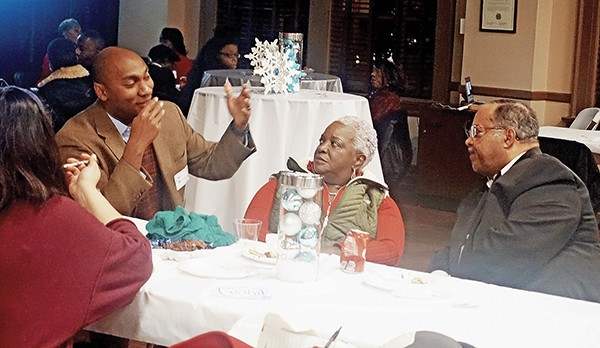In keeping with the season, Steven Reid, the consultant who has helped guide two local political campaigns to victory in recent years — those of 8th District Congressman David Kustoff and Memphis Mayor Jim Strickland — has sent out some would-be Christmas cheer to supporters of the latter.
In a one-sheet document forwarded to the current mayor’s supporters, Reid says, “Over the past few months, I have seen some exciting poll numbers. It is a standard poll technique to test several well-known local and national figures (even names that might not be on an upcoming ballot) to gauge voter attitudes and opinions. I am fortunate to have been able to review several recent polls that included Mayor Strickland.”
Reid, who began his consulting career in 1992 by overseeing the upset victory of Blanche Lambert (later Blanche Lambert Lincoln) over her former employer, then U.S. Representative Bill Alexander, in Arkansas’ First Congressional District, quotes a finding from Otis Sanford’s book, Boss Crump to King Willie: “Strickland … made history by receiving more of a percentage of the black vote than any winning white candidate since William B. Ingram in 1963.”
Then, citing what he says is “an average based on some notable numbers,” Reid makes the following claims:
• “The mood of Memphis voters has improved dramatically since 2015. (38-47 from 31-58);
• Mayor Strickland is popular with 60 percent favorable — 19 percent unfavorable with a positive rating that cuts across every subgroup in the polls including white (68-13) and African American (58-18).
• It’s interesting to compare those numbers to mayors in peer cities: New Orleans Mayor Mitch Landrieu — 57/36; New York Mayor Bill de Blasio — 50/42; Cincinnati Mayor John Cranley — 48/31.”
Reid concludes his missive with this sentiment: “If you think the last campaign was something, take a minute and think of what we can accomplish now. I can’t wait to celebrate in October 2019.”
With that next mayoral election nearly two years off, it is still a bit early to predict possible opponents for Strickland, but it seems almost certain, especially if the city’s fluctuating crime situation starts to fester or if the legal standoff over Confederate memorials is not resolved, that there will be one or two serious challengers willing to test Reid’s optimism. Watch this space.
• The biggest ballots in Shelby County, size-wise, occur in eight-year intervals, when the numerous elected judgeships come up for election. That won’t happen again until 2020, but next year’s August ballot will feature three judicial races — all special elections.
Two of them are Circuit Court positions, with Judge Mary Wagner in Division 7 and Judge David Rudolph in Division 9, both appointed to fill vacancies during the last year, having to run for the right to serve out terms that will be contested again in 2020. A third race will determine who will serve in the Criminal Court, Division 10, now held by Judge James Beasley, who intends to retire at the end of this year.
Both Wagner and Rudolph have been visibly campaigning to maintain their judgeships, and Rudoph also has an opponent busily making the political rounds: Yolanda Kight, a judicial commissioner who has run previously for Shelby County Clerk.
While the judicial positions are nonpartisan, these three races may, appropriately or not, be affected by the predominant partisan flavor of next year’s voting, with their outcomes determined by turnout factors having to do with the contested nature of Democratic and Republican primaries for other positions. More about that anon.
 Jackson Baker
Jackson Baker
Candidates in next year’s elections are making the rounds of holiday gatherings. Here Lee Harris, candidate for County Mayor, pitches Mary and Myron Lowery at the annual party of the Shelby County Democratic women.